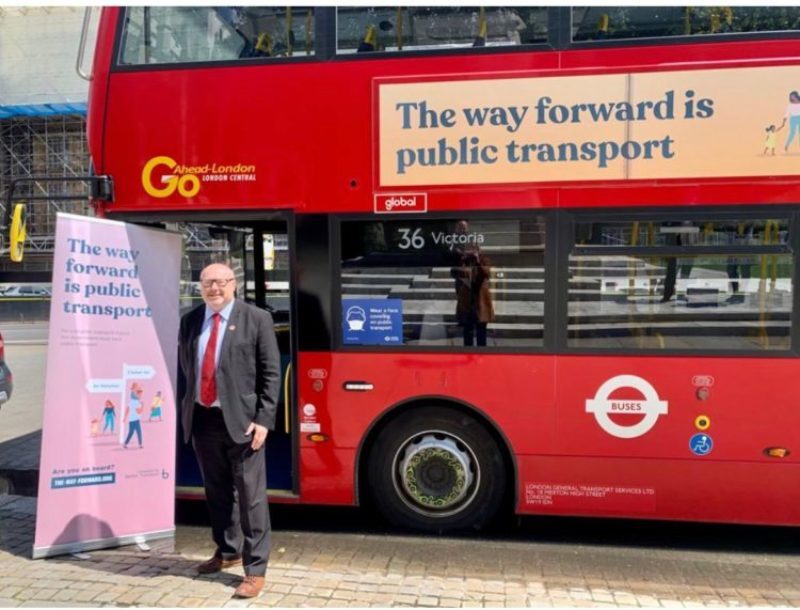Grahame Morris MP Working for Easington
- Labour exposes shocking new statistics that show local bus routes in England have declined by 50 percent since 2010, with more than 8,000 services slashed.
- A loss of over 2,000 bus routes in the last year alone, with overall routes declining by 20 percent from 2022 to 2023.
- Over half of North East bus services lost since 2010.

Few acts of economic and social vandalism are as significant as the Conservative Government’s neglect, mismanagement, and attacks on our essential public transport.
Buses serve as vital community lifelines, especially in rural areas like East Durham. They play a crucial role in connecting people to health, education, and employment, facilitating connections between our tourist destinations, local businesses, and customers.
When public transport fails, it’s our community, society, and local economy that bear the brunt. Businesses are forced to close early due to decreased footfall, leading to reduced employment opportunities for job seekers. In essence, it undermines our local economy.
In the weeks ahead, students will receive their A-Level and GCSE results. However, their decisions about which college or sixth form to attend are heavily influenced by the reliability and availability of local bus services. In many instances, families face inconvenience as they make last-minute adjustments to their schedules when the bus fails to arrive, ensuring their child can reach college. Yet, for the most disadvantaged families without cars, decisions regarding education are based on accessibility and travel barriers, rather than selecting the best educational options. This assault on hope and aspiration stands as one of the most severe consequences of the Tories’ transport policies.
I will never forget the day when a distressed constituent contacted me, distraught that despite spending hours at the bus stop, no bus arrived, causing him to miss his chemotherapy appointment. The physical and emotional toll on the gentleman was profound, and there’s also an impact on the over-stretched NHS services, which often cite the cost of missed appointments in patient correspondence.
The Government often employs the £2 bus fare cap as a defence against criticism. However, the value of the £2 bus fare cap only holds if a functional bus service is available in the first place.
I welcome Labour’s Bus Reform Plan, put forth by our outstanding Shadow Transport Secretary, Louise Haigh MP. The three-point plan aims to:
- Empower communities to regain control of bus services. Labour intends to grant all local transport authorities the power to reclaim control of bus services, extending the option to franchise services to all communities (currently only available to metro mayors). Smaller local transport authorities will receive expert guidance and assistance to facilitate the transition towards franchising services, with the Bus Directorate in the Department for Transport redirected to provide support to local transport authorities.
- Reduce the legal obstacles to franchising. By presuming in favour of franchising, Labour seeks to eliminate the costly and time-consuming barriers that impede much-needed reform and hinder communities from influencing the management of their bus services.
- Lift the legal prohibition on municipal bus ownership. Implemented by the Conservatives in 2017 following intense lobbying by vested interests, this measure would enable communities desiring to establish their municipal bus networks, building upon the success of areas like Nottingham City Council, which boasts the highest satisfaction ratings in the country.
We find ourselves in an era of climate crisis, where encouraging people to shift from cars to more sustainable public transport is only feasible if services are affordable, frequent, and dependable. Yet, instead of cultivating public transport as a viable choice, the government’s transport policy compels individuals in East Durham and throughout our region to rely on their cars.
The Tories have decimated public transport, and it is our community and local economy that is paying too high a price for this systematic failure.
Notes:
Local bus service figures Since 2010:
Routes lost since 2010: 8,613 (-50%)
Routes lost from 2021/22 to 2022/23: 2,160 (-20%)
Regional local bus services figures:
Region Bus Services in 2010
Bus Services in 2023
Percentage Fall (2010 to 2023)
East 2924 1597 -45%
North East 3936 1967 -50%
North West 4256 2028 -52%
South East 1289 906 -29%
West Midlands 2221 702 -68%
West 2768 1581 -43%
Miles driven by buses in England:
Year Vehicle mileage on local bus services in England
2016/17 1,238 million
2017/18 1,195 million
2018/19 1,173 million
2019/20 1,141 million
2020/21 970 million
2021/22 1,063 million
Sources:
https://www.gov.uk/government/statistical-data-sets/bus-statistics-data-tables#local-bus-vehicle-distance-travelled-bus02 (tab: BUS02a_mi, Total)
Buses are the most used mode of public transport in England – with 2.8 billion passenger journeys made by bus in 2021/22:
https://www.gov.uk/government/statistics/annual-bus-statistics-year-ending-march-2022/annual-bus-statistics-year-ending-march-2022
Over the six month period from October 2022 to March 2023, the Bus Recovery Grant provided £130m:
https://www.gov.uk/government/news/130-million-to-protect-bus-services-across-the-country
The funding to ‘support services’ announced by the Government in March was £300m over eighteen months, an implied reduction of approximately 23% in existing funding to support services.
This amounts to less than that which the Confederation of Passenger Transport said was necessary to keep services at current levels (which would need £260m over 12 months, or see 15% of services or over 1,600 lost): : https://www.cpt-uk.org/news/bus-passengers-to-be-cut-adrift-if-long-term-funding-from-government-isn-t-found/
On these industry calculations 23% of the 1,640 at-risk routes is 377 additional routes.
